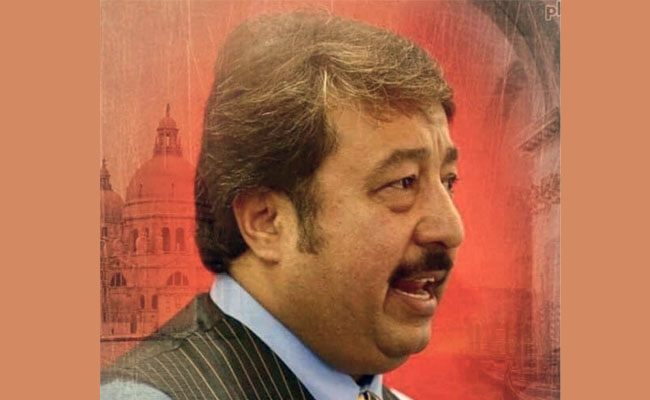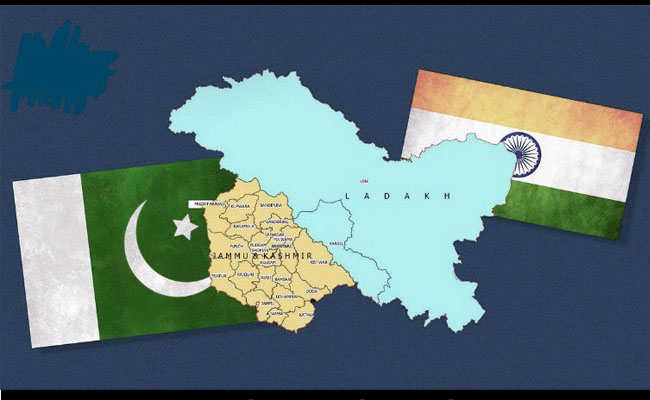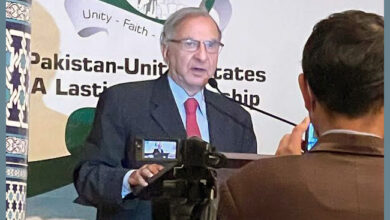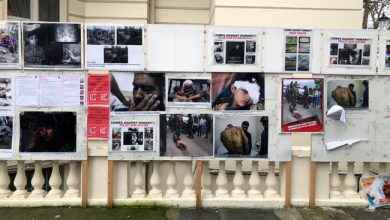Kashmir Solidarity Day

Written By: Gohar Almass Khan
Observed by all Pakistanis in Pakistan , Overseas Pakistanis and Kashmiris on February 5th globally each year, the Kashmir Solidarity Day is a national holiday, marked to show to the Kashmiris and the world at large that Pakistan and its people have not forgotten the long-pending issue and their struggle for the right to self determination.
As a national holiday, the occasion is packed by public processions and special prayers in mosques, churches,gurdwaras and temples for the liberation of the Valley under siege and illegal, immoral and unjust Indian occupation. A one-minute silence is observed throughout the country to express unity and solidarity with our Kashmiri brothers and sisters and to pay respect to hundreds and thousands who lost their lives for this just cause , Also, special programmes are held to demonstrate complete solidarity with the Kashmiris and protests are arranged against the Indian oppression of Kashmiris.
Officially, Pakistan began observing February 5 as the Kashmir Day to “reiterate solidarity with the people of Jammu and Kashmir” in 2004. Initially Kashmir day was proposed by the late Qazi Hussain Ahmed , a veteran politician in 1990/91 when Mian Nawaz Sharif was PM of Pakistan ,however, On January 31, 2004,the-then Federal Minister for Kashmir and Northern Area Affairs said the people and the Government of Pakistan would demonstrate on the day their solidarity with the aspirations of the people of Kashmir.
He said that observance of the day was meant to convey a message to the world that Pakistan would not step back an inch from its stated position on the issue.That same year Pakistani prime minister, Mir Zafarullah Khan Jamali, visited Muzaffarabad on February 5 and addressed a joint session of the Legislative Assembly and Council. Every year the innocent victims to Indian atrocities , the brave Kashmiri people , bury their loved ones in the green Pakistani flag showing their love for Pakistan.

The pro-Pakistan sentiment in Kashmir is neither dead nor diminished, it’s suppressed and the reasons are rooted in the conditions we are going through since the 1990. Our young generation should be educated about the importance of the Kashmir Day and the schoolchildren should be taught that Kashmiris have been struggling hard to get their right to self-determination under the UN resolutions for the last seven decades.
The Indian government on August 5 , 2019, repealed Article 370 of its constitution, stripping occupied Kashmir of its special status and dividing up occupied Jammu and Kashmir into two union territories; one Jammu and Kashmir, and the other the Buddhist-dominated high altitude region of Ladakh. It is deemed as a complete and utter violation of the UN Security Council Resolutions and bilateral agreements between India and Pakistan, especially the Simla Agreement.
An iron curtain remains in place on more than 8 million Kashmiri people snapping their communications with the outside world and a Curfew remains imposed and movement of people restricted. Many people, especially women and children, are being continuously abused and tortured by Indian occupation forces. Britain has a moral obligation to resolve this unfinished issue since the partition of the subcontinent in 1947 , and after recent Indian unilateral illegal activities and actions We must reject the Indian narrative that the changes are India’s “internal matter” and this issue must remain open and active on the agenda of the Security Council and United Nations.
The world must understand that India-occupied Jammu and Kashmir is an internationally recognised disputed territory. No step by the government of India can change this. These changes are illegal and void as per the relevant UNSC Resolutions, and do not prejudice the right to self-determination of the people of occupied Jammu & Kashmir. No matter what, the Kashmir issue remains an international dispute today. The day reminds the Kashmiris that Pakistan has not left them at the mercy of circumstances. Thus our talks with India have to be on equal terms without giving unilateral concessions.





